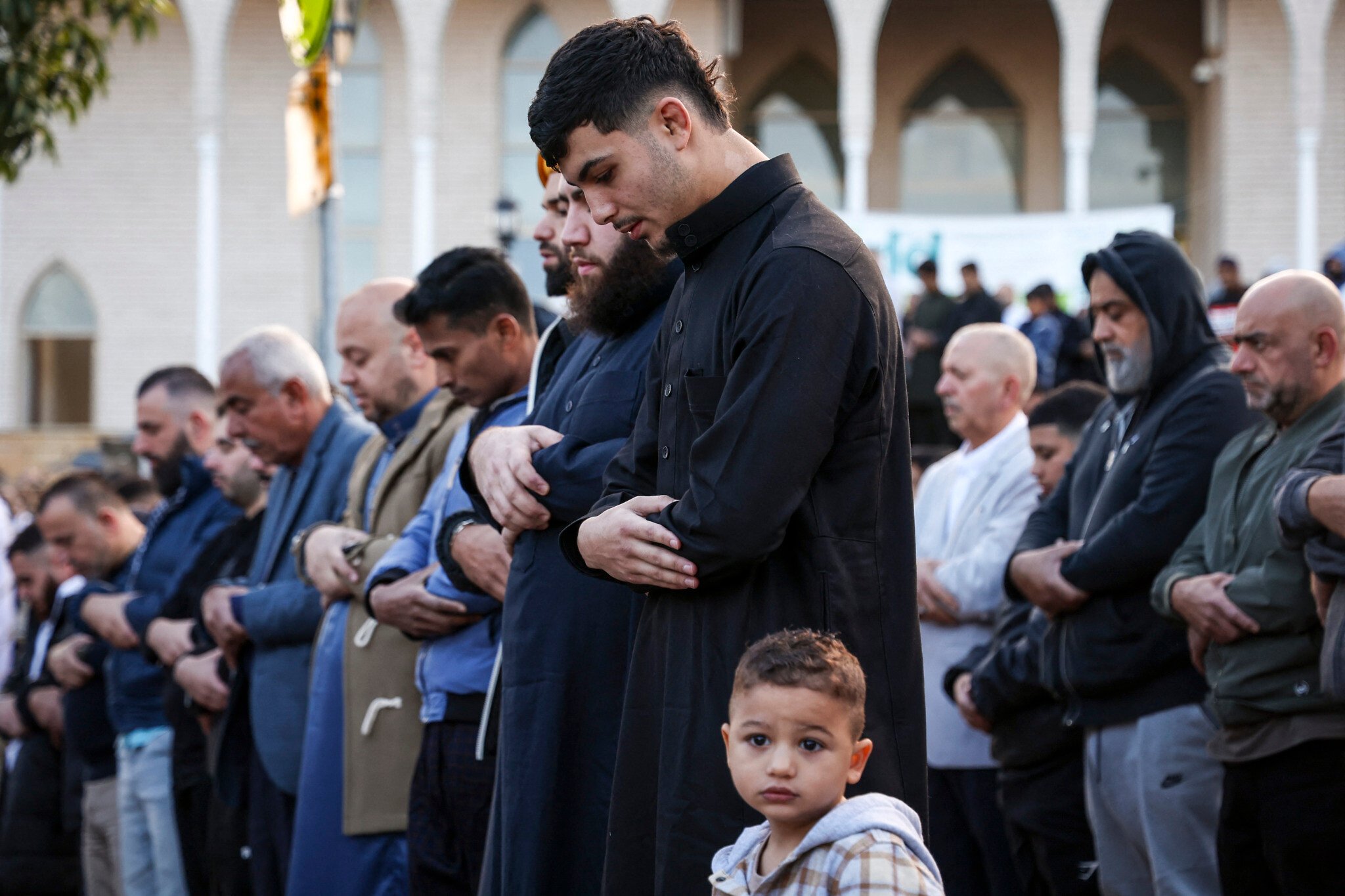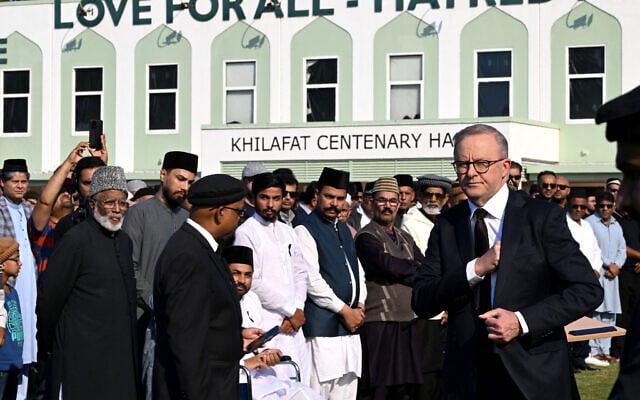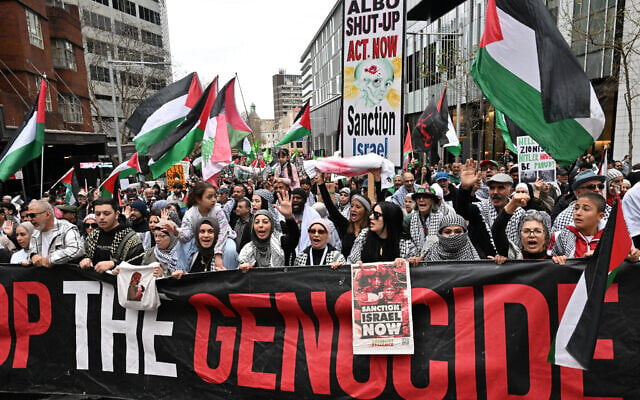


Australia has failed to tackle persistent and intensifying Islamophobia, a government envoy said Friday, calling anti-Muslim hate a “deeply ingrained societal challenge.”
At a news conference in Sydney unveiling his first report, Special Envoy to Combat Islamophobia Aftab Malik said that an “Islamophobic spike” followed Hamas’s October 7, 2023, attack on Israel, which started the ongoing war in the Gaza Strip.
The spike has “arguably been driven by anti-Palestinian hate and racism,” he said.
But “the reality is that Islamophobia in Australia has been persistent, at times ignored and other times denied, but never fully addressed,” he said.
The envoy became visibly emotional as he noted that Muslim women in particular “face the brunt,” telling reporters: “Many are physically assaulted, spat, or shoved, or subjected to sexual threats simply for wearing a headscarf.”
Without any remedies, “Islamophobia has intensified over the past two decades,” he said, arguing that the problem is “not only interpersonal, it is also institutional and structural.”
Malik, appointed last year as the inaugural holder of the envoy post, shared the experience of a Muslim family who were approached by a stranger on the train telling them he would “love to kill them all.”
“It is a moment where we decide who we are as a country and whether we are prepared to take the necessary steps to ensure that every person in Australia, regardless of faith, ethnicity or background, is safe, valued and treated with dignity,” he said.
The report did not include comprehensive statistics on anti-Muslim hate crimes — one of its suggestions is that the government regularly publish them — but Malik cited figures from the nonprofit Islamophobia Register, which “recorded a 150% increase in verified Islamophobic incidents by November 2024,” while online incidents “skyrocketed 250% compared to any other period before that.”
The report also cited public opinion studies, including one that found 1 in 3 Australians expressed negative attitudes towards Muslims in 2024.
The report noted that there is no universally accepted definition of Islamophobia, but said it seeks merely “to convey its pervasiveness and impacts,” while suggesting that Canberra look into the question of whether to adopt a working definition.
Other suggestions included a funding program for security at sites like mosques and Islamic schools, with grants available to small institutions; improving law enforcement bodies’ collection of data on hate crimes; and considering a statutory hate aggravation that would apply to existing crimes, such as assault or threats of violence, when the victim was targeted for their Muslim or perceived Muslim identity.
The report also suggested the establishment of a separate, dedicated commission of inquiry into “anti-Palestinian and anti-Arab racism,” addressing events since the outbreak of the Israel-Hamas war.
In that time, Muslim university students — in particular female students — expressed to Malik “their unease to remain on campus after classes, and [that] they instead resign themselves to prayer spaces which they view as ‘safe zones.’”
“Many students are tired of universities’ concern with ‘extremism,’” the envoy wrote.
“Through their efforts to humanise and raise awareness of Palestinians’ suffering, they feel abandoned, unwelcome, and silenced,” he reported, adding that people of “both Palestinian and Arab-Muslim communities often speak of the pressure they feel to conceal their identities, being vilified for their views on Palestine, and linked to extremism.”
“The censorship of what amounts to pro-Palestinian discourse points to a systematic effort across society, in educational settings, at our workplaces, and in sections of our media, to silence and suppress vital voices in public conversations,” Malik wrote.
He cautioned, however, that criticism “of Islam or Muslims, when grounded in respectful and lawful debate, must remain protected as a fundamental exercise of free speech.”
One page of the report addressed “the diabolical situation in Gaza” itself, with the envoy writing that the “hellish suffering inflicted upon the people of Gaza” has mobilized world opinion.
Malik called on Canberra to “take a clear and public stand against the dehumanization, hate, racism, and silencing directed at Palestinian and Arab [Australians].”
Malik was appointed in September 2024, some months after the appointment of a special envoy to combat antisemitism. Australia has also seen a surge in attacks on synagogues and other Jewish sites, including several arson attacks, as well as a neo-Nazi rally near the Melbourne parliament.
In February, Australia passed new anti-hate crime laws, including mandatory minimum sentences for terror offenses and displaying hate symbols.



